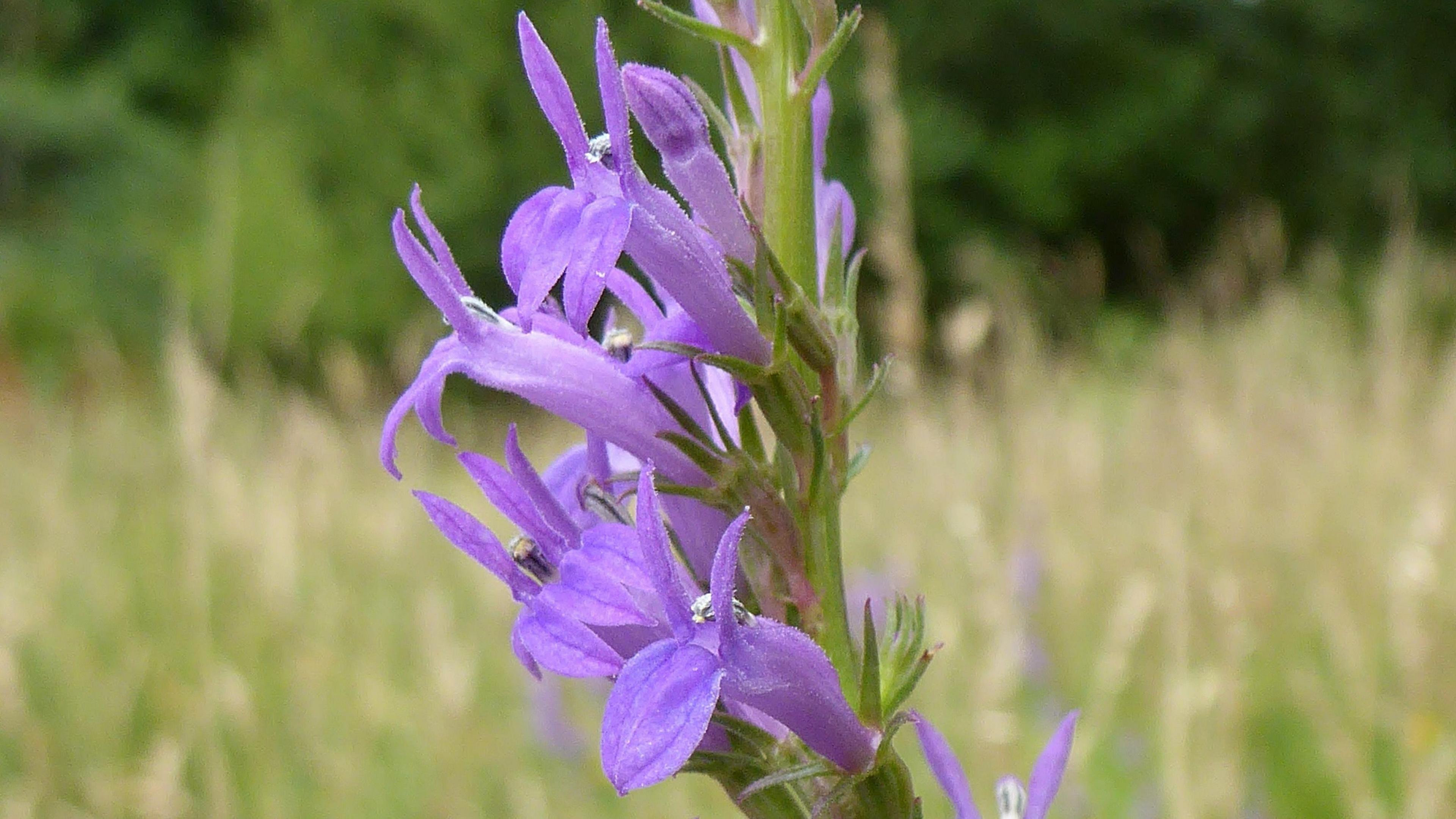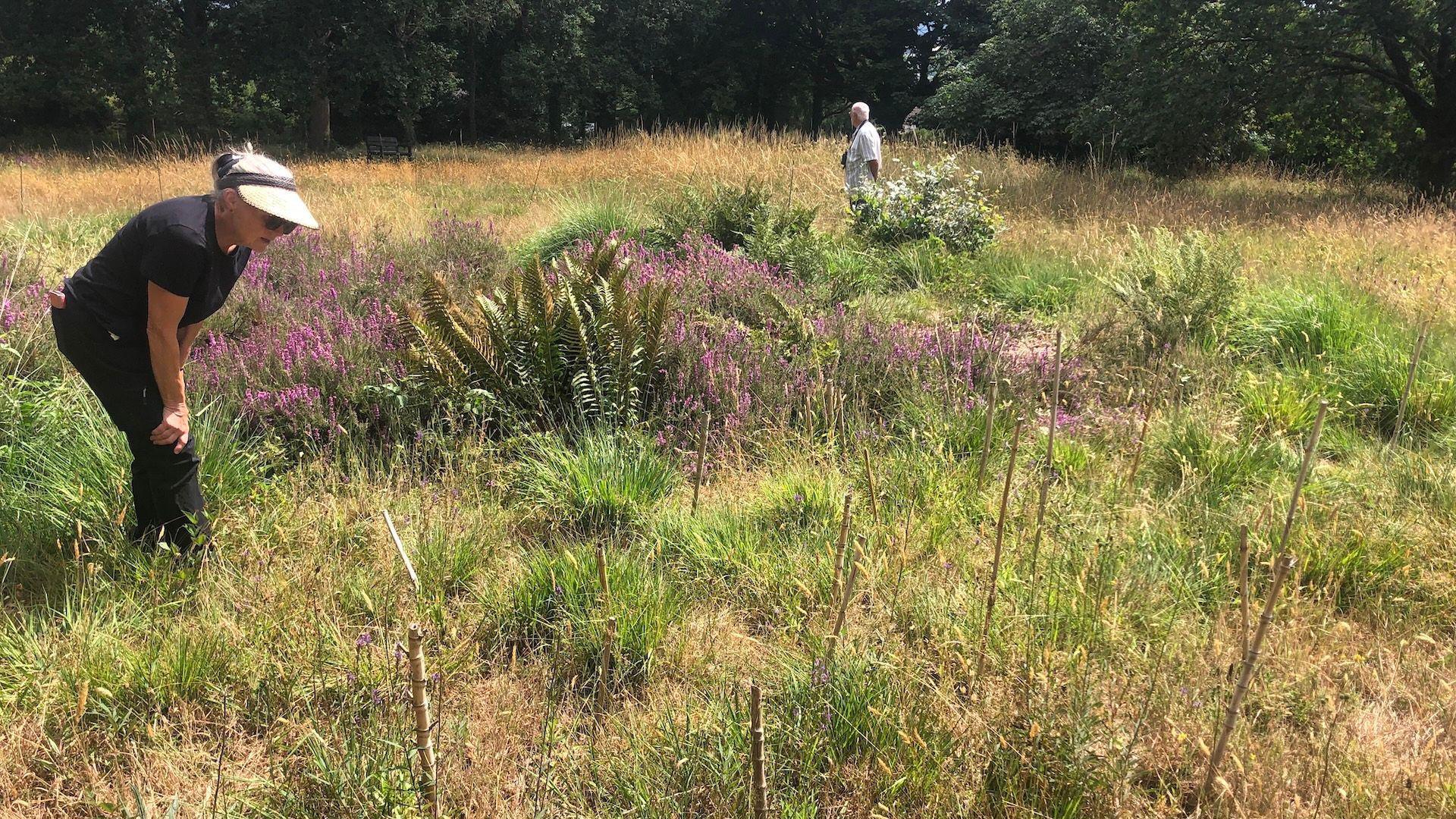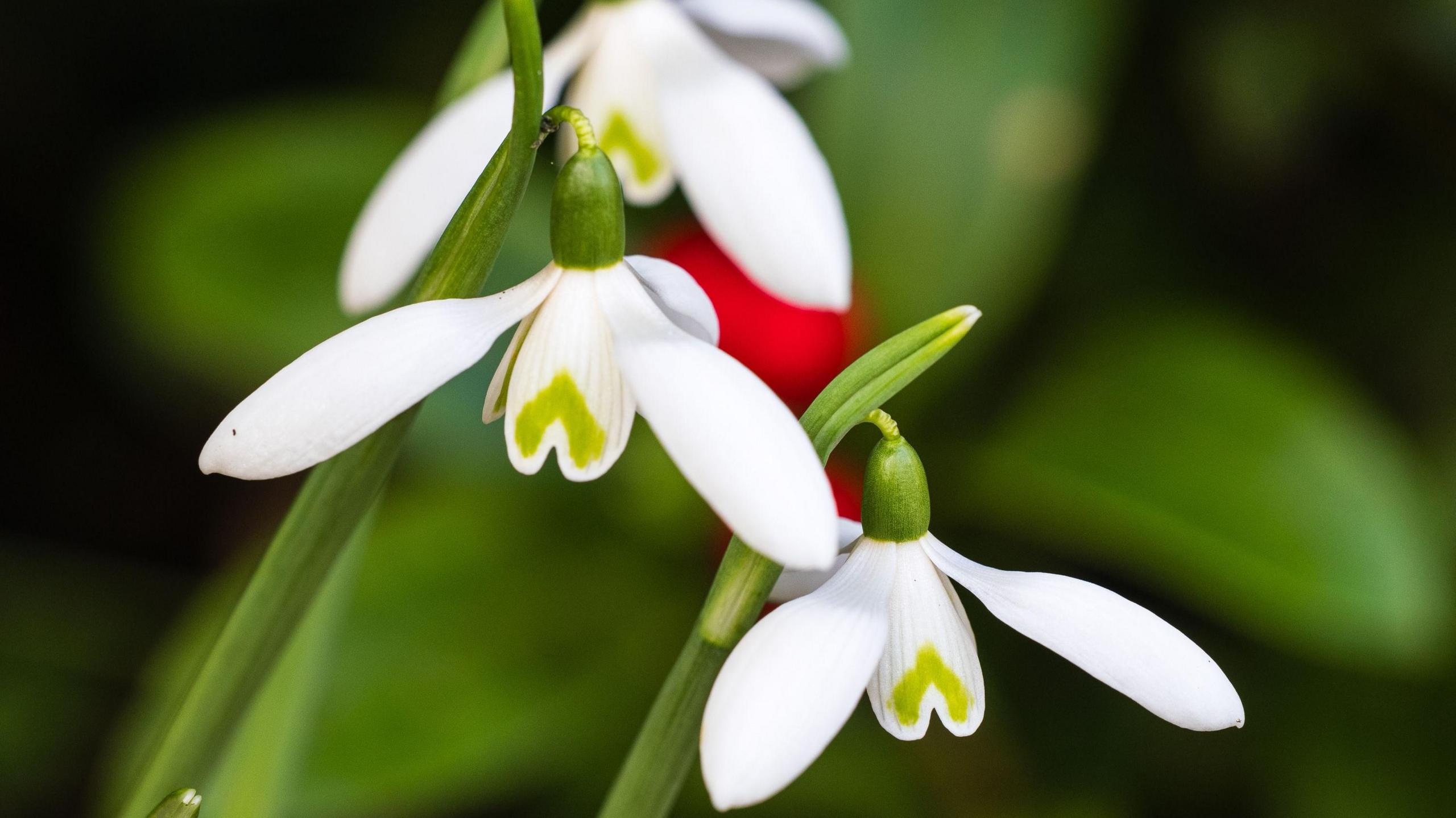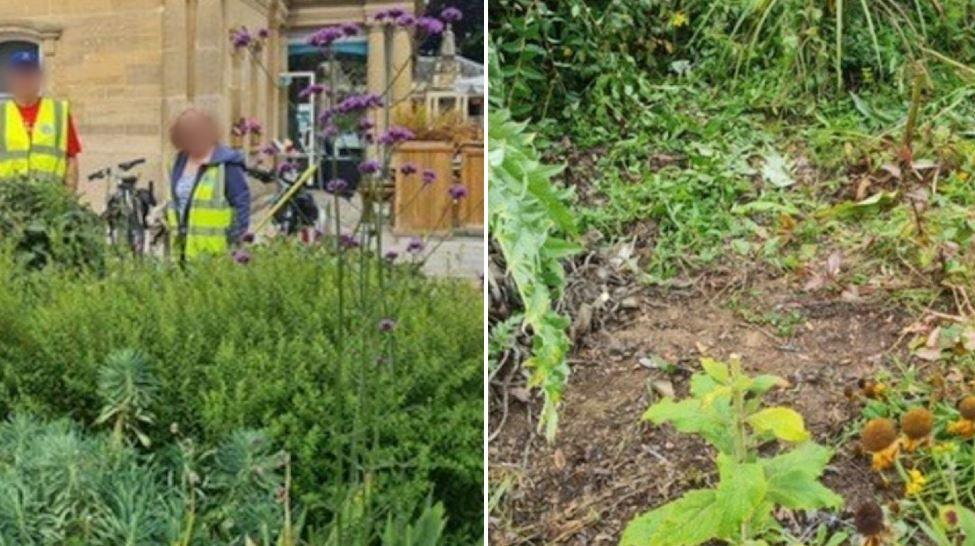Volunteers help rare wildflower recovery

Heath lobelia has declined due to the loss of open heathland and grazing, conservationists said
- Published
A rare wildflower has shown signs of recovery thanks to the work of volunteers and landowners, conservationists have said.
The East Devon National Landscape team said heath lobelia, a plant with purple-blue blooms, had declined due to the loss of open heathland and grazing.
It said volunteers and local landowners had worked to restore the species by planting it, seed collecting and managing sites around Shute and Kilmington.
Ruth Worsley, nature engagement co-ordinator, said volunteers had "worked tirelessly throughout the year with annual counts, practical habitat management and monitoring".

The plant was once locally known as the flower of the Axe, Ruth Worsley said
She added: "Once known locally as 'the flower of the Axe', it's inspiring to see the community coming together to protect and restore this beautiful part of East Devon's natural heritage."
The team said in 2025 the project highlights also included:
Volunteers counting 67 plants growing on Kilmington Common, following the planting of an additional 30 heath lobelia the previous autumn
Although an autumn 2024 planting near Newton Poppleford was unsuccessful, a single heath lobelia was later found nearby, showing promising signs of natural spread
Follow BBC Devon on X, external, Facebook, external and Instagram, external. Send your story ideas to spotlight@bbc.co.uk, external.
Related topics
- Published1 November

- Published29 July
